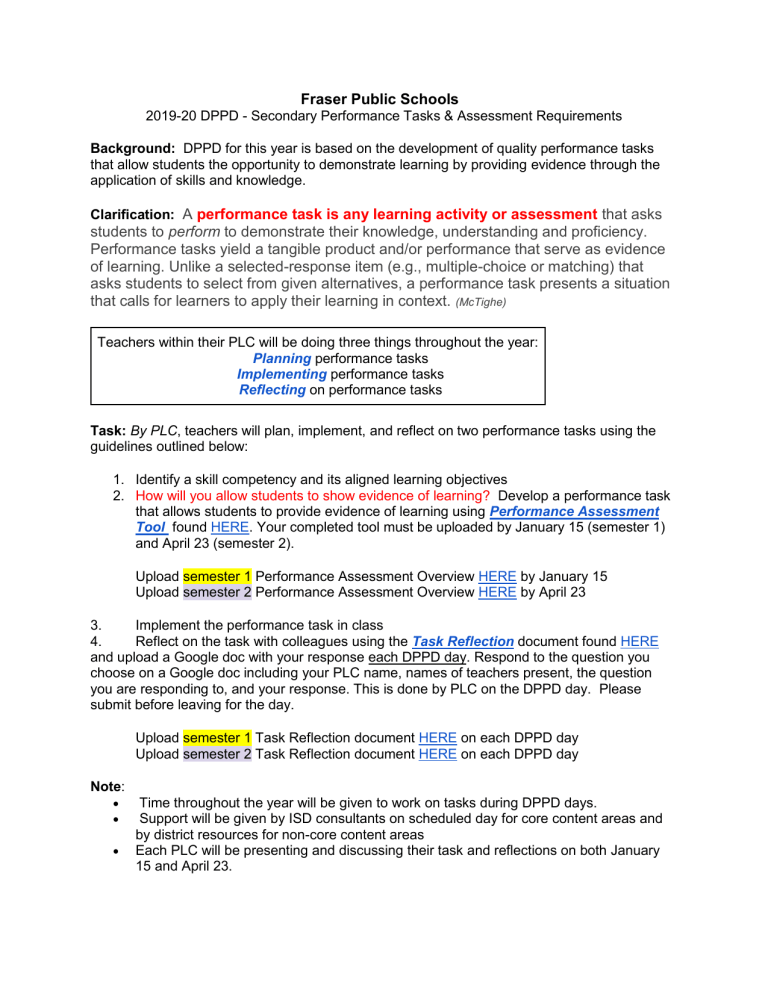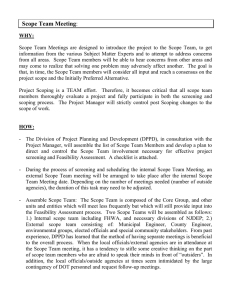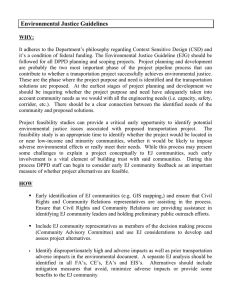Fraser Public Schools: Performance Tasks & Lunar Phases
advertisement

Fraser Public Schools 2019-20 DPPD - Secondary Performance Tasks & Assessment Requirements Background: DPPD for this year is based on the development of quality performance tasks that allow students the opportunity to demonstrate learning by providing evidence through the application of skills and knowledge. Clarification: A performance task is any learning activity or assessment that asks students to perform to demonstrate their knowledge, understanding and proficiency. Performance tasks yield a tangible product and/or performance that serve as evidence of learning. Unlike a selected-response item (e.g., multiple-choice or matching) that asks students to select from given alternatives, a performance task presents a situation that calls for learners to apply their learning in context. (McTighe) Teachers within their PLC will be doing three things throughout the year: Planning performance tasks Implementing performance tasks Reflecting on performance tasks Task: By PLC, teachers will plan, implement, and reflect on two performance tasks using the guidelines outlined below: 1. Identify a skill competency and its aligned learning objectives 2. How will you allow students to show evidence of learning? Develop a performance task that allows students to provide evidence of learning using Performance Assessment Tool found HERE. Your completed tool must be uploaded by January 15 (semester 1) and April 23 (semester 2). Upload semester 1 Performance Assessment Overview HERE by January 15 Upload semester 2 Performance Assessment Overview HERE by April 23 3. Implement the performance task in class 4. Reflect on the task with colleagues using the Task Reflection document found HERE and upload a Google doc with your response each DPPD day. Respond to the question you choose on a Google doc including your PLC name, names of teachers present, the question you are responding to, and your response. This is done by PLC on the DPPD day. Please submit before leaving for the day. Upload semester 1 Task Reflection document HERE on each DPPD day Upload semester 2 Task Reflection document HERE on each DPPD day Note: Time throughout the year will be given to work on tasks during DPPD days. Support will be given by ISD consultants on scheduled day for core content areas and by district resources for non-core content areas Each PLC will be presenting and discussing their task and reflections on both January 15 and April 23. Fraser Public Schools Performance Task Tool - Secondary Schools A performance task is any learning activity or assessment that asks students to perform to demonstrate their knowledge, understanding and proficiency. 1 Subject :Lunar Phases 2 Course: Science 8A 3 Unit: Moons, Eclipses, and Seasons 4 Grade Level:8 5 Submission Date: 1/15/2020 6 Title of task: Model of the lunar phases 7 When will the task be administered?: Post exploration 8 What competency or competencies will be assessed? Develop and use a model 9 What learning objectives will be assessed? Develop and use a model of the Earth, Sun, and moon system to describe the cyclic patterns of lunar phases 10 What will students submit/present/create to show evidence of learning? A physical or graphic model of the lunar phases 11 What essential skills will be assessed? Building a model 12 What essential content will be assessed? Understanding the Earth, sun, moon orientation 13 Describe the type of task. Product Example: short answer, product, performance, other 14 Success Criteria - Describe in specific terms what successful learning looks like. What proof of learning are you looking for? Orientation, illumination, and sequence of phases 15 What will be your scoring guide? Example: answer key, general rubric, task-specific rubric (used only for this task), checklist, teacher observation Checklist, teacher observation, rubric 16 Identify the intended rigor using the Cognitive Growth Targets from Modern Teacher. Creating and retrieving 17 Identify the connection the task has with as many 6 C’s as apply communication, critical thinking, creativity, collaboration 18 To what extent will you allow for learner variability? Anything can be used to create the physical or graphic model 19 To what degree will students be given choices or be required to make decisions about the task design, approach, resources, used, or presentation of learning? Other than the orientation and phases, their creativity is the only limitation. 2019-20 Adapted from A Local Assessment Toolkit to Promote Deeper Learning, Karin Hess



